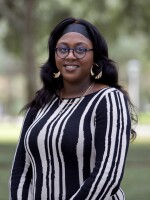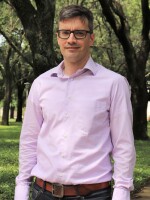Black nerds, or Blerds, are mainstream these days. From comic book superheroes on the big screen, like Black Panther or Storm, to hip-hop artists celebrating their affinity for anime, Blerds are a growing part of pop culture.
But it wasn’t always like this. For a lot of Black kids growing up before the 2000s, there weren’t many people on screens or in comic books that looked like them.
"Black Panther," the 2018 movie from the Marvel Cinematic Universe, was seen as a landmark, and not just because of Chadwick Boseman’s performance as the titular character. But instead, because that movie arrived more than 50 years after Black Panther first appeared in comic books in 1966.
Blerdom’s hall of heroes includes characters like Geordi La Forge, the iconic Starfleet officer played by LaVar Burton in the TV series "Star Trek: The Next Generation." But for Blerds who grew up in the '70s and '80s, Black characters on screen were often supporting roles, even when it was the coolest man in space, like Billy Dee Williams’s Lando Calrissian in "Star Wars."

'90s-era Blerds might have looked to Kwame from the animated environmentalist TV series "Captain Planet and the Planeteers." But for some Blerds, lack of representation meant putting their own spin on white characters.
We spoke to Sharell McKinney McInerney, a St. Pete bartender and admin specialist who cosplays as characters she creates along with some of her favorites like Cheetara from "Thundercats" and Chun-Li from "Street Fighter."
“Instead of the little buns that [Chun-Li] has, I have my hair in two nice big afros,” McInerney explains. “I've tied the white ribbons around them. It's my spin on her headpiece. Instead of the white boots that are flat, I'm rocking heels, sometimes fishnets because why? I'm grown. I'm a woman, and I can still be Chun-Li.”

NPR TV critic and host, Eric Deggans, says Blerdom has taken over popular culture.
“In the '90s, rap was taking over pop music. You had Snoop Dogg and Dr. Dre and NWA. You had these really powerful macho figures,” Deggans explained. “Fast forward a decade and Andre 3000 is playing the flute. It feels like Black nerds have had their moment for a while, but are on the cutting edge of pop culture in a lot of ways that we weren't when I was growing up in the '70s and '80s.”
Today, we’re seeing a mashup of the two, celebrities and nerdom. There’s plenty of Black musical artists now who aren’t afraid to flaunt their nerdiness. From artists like Saweetie’s affinity with the Japanese manga, or comic book series, "Sailor Moon," to Lizzo embracing her upbringing as a band nerd.

In addition to McKinney and Deggans, we spoke to Orlando writer and comic book author, Jaylen Christie and Davenport yoga instructor and well-known cosplayer, Anika Aleong. You’ll hear their expertise on what it means to be a Blerd and how the Black lived experience affects artforms associated with nerdom, like comic books and cosplay.
We recorded this conversation via Zoom.




